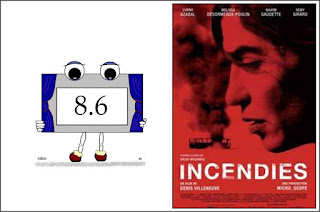Ordet
English title: Word (The)
Also known as: Parole (la)
Genre: religious drama (in black and white)
With: Henrik Malberg (Morten Borgen), Emil Hass Christensen (Mikkel, Morten’s eldest son), Birgitte Federspiel (Inger), Preben Lerdorff Rye (Johannes, Morten’s second son), Cay Kristiansen (Anders, Morten’s youngest son), Gerda Nielsen (Anne Petersen), Ejner Federspiel (Peter Petersen), Sylvia Eckhausen (Kirstin Petersen), Ove Rud (Pastor), Henry Skjær (the Doctor)
Director: Carl Theodor Dreyer
Screenplay: Kaj Munk (based on his play), with help from Carl Theodor Dreyer
Release: 1955
Studio: Palladium Film
Rating: -
MBiS score: 9.2/10
The Lord Giveth, and the Lord Taketh Away
QuickView
Story-line: we find ourselves in 1925, on Morten
Borgen’s farm in the Danish countryside. Morten, the widowed and deeply religious
patriarch, is disappointed with the way his family has turned out. His eldest
son, though happily married, has lost all faith in God. His second, whom he
sent to study religion, has come home suffering from a messiah complex. Fortunately,
there’s Anders, the youngest… except that Anders is secretly in love with the daughter
of Morten's long-standing moral enemy, Petersen the tailor.
Pluses: eminently serious and natural performances by a talented cast, dignified direction, a heartbreaking screenplay that patiently fleshes out its characters with its effective dialogues, modest but tasteful production values and a mighty musical theme.
Minuses: although slow and static (being based on a stage play), not very aesthetic (having been produced with little means) and austere (due to its subject matter), ORDET still manages to maintain interest right up to its stunningly powerful climax.
Comments: C.T. Dreyer has made few films but has attained legendary status for the high quality of his oeuvre. This Venice Film Festival winner, which matches Bergman’s best for human value, remains one of the richest and most uplifting movie experiences of all time. Once you’ve seen ORDET and other films of its calibre, you understand why many call cinema the “seventh art”.
MBiS
© 2019 – All rights reserved

















